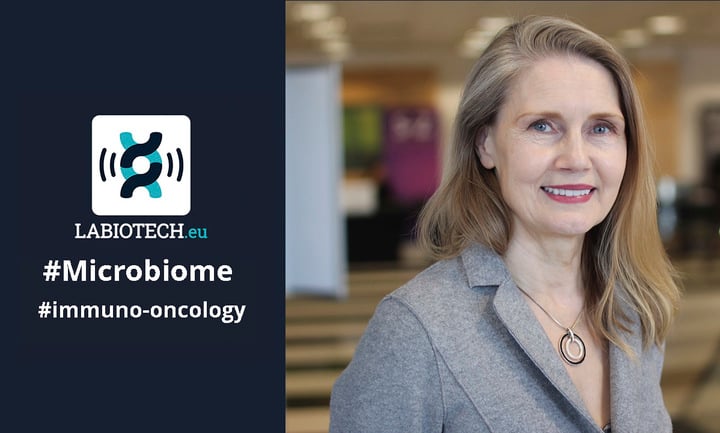Newsletter Signup - Under Article / In Page
"*" indicates required fields
Clara talked to Linda Summerton, CEO of Immodulon Therapeutics, about the company’s project of applying the microbiome to immuno-oncology.
As R&D efforts in the microbiome gain traction, Clara talked to the head of one of the most valuable companies in the UK, Immodulon Therapeutics. When asked about Forbes’ valuation of her company at £400M, Linda Summerton laughed, “That’s delightful, we’d love to be worth that much.” While she can’t say how much the company has raised, Summerton admits that the figure is in the “tens of millions.”
She also notes that Immodulon counts with nontraditional investors: “As a company, we’re quite different in that we’re funded through ultra-high net worths and philanthropic investors, so we really want to make this valuable new treatment as widely available to patients as possible,” Summerton elaborates.
So what has these investors abuzz? The company’s lead candidate is an immunotherapy for cancer, IMM-101, and it’s currently in Phase II for pancreatic cancer. This type represents a huge unmet clinical need: only a few new treatments have been approved in the last 20 to 25 years, according to Summerton, and they’re all highly toxic.
Immodulon aims to outperform these with heat-killed mycobacteria that act as immune modulators. “It’s a bit esoteric — no one’s really got anything in development like this,” says Summerton. “We’ve now got quite a bit of clinical data to underpin what we do in vivo and in vitro…We’ve shown that it does have clinical benefit to patients, but it doesn’t really add much toxicity. It’s quite gentle.”
Summerton told Clara the next steps are registration of IMM-101 and then its launch in pancreatic cancer, adding “We’re seeking money for regulatory development now.” The company is also exploring applications to other cancers and how IMM-101 works in combination with checkpoint inhibitors. To reach these goals, Summerton explains that in biotech, “Usually you need a pharma partner to help you through…though for some companies an IPO will do if the regulatory development is really cheap.”
She elaborates, “There’s quite a healthy system for funding early-stage companies [in the UK]. I think the challenge really comes when you want to progress a promising drug that’s already got Phase II data through to Phase III and to get the drug registered, then it takes a larger amount of money.” Of course, this stage still carries some risk that the drug will fail, but it’s also where investors will make returns.
Summerton also sees an opportunity in Brexit to lessen the intensity of this crucible in development. “I’m hoping with Brexit that the government starts thinking about what it wants to do to improve the status for small companies like us and maybe get us ahead of the curve,” she says.
When Clara asked her about another troubling topic in biotech, gender diversity, Summerton also sees reasons for hope.“I actually think [gender diversity] is pretty good,” she says. “In recent years, [it] has been my experience that…there are quite a lot of women coming through in senior roles,” noting that the CSO as well as the Heads of Quality Assurance, Clinical Operations, and Regulatory Affairs are all female. “I can’t speak more broadly than my own experience, but I think it’s looking good,” she concludes.
Oncology R&D trends and breakthrough innovations







